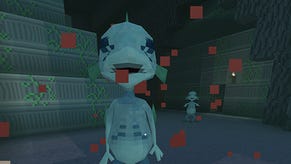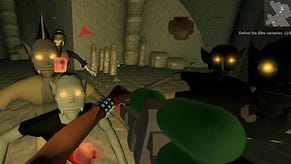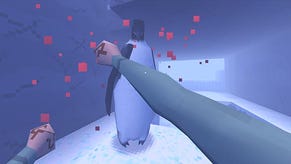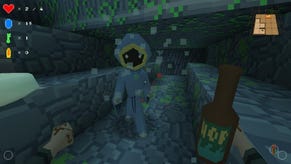Hone Your Lovecraft: Eldritch Creator Spills Sales Figures
Lovecraft? Probably a Minecraft clone
It's sometimes hard to gauge from the outside exactly how successful an indie game has been, so I'm always interested when developers release figures. David Pittman, creator of Lovecraftian first-person roguelike Eldritch, has done just that. In a post-mortem posted on his blog, the former 2K Marin developer outlined the steps he took in leaving his old job, building the game, and was even kind enough to include some graphs.
First of all, he explains what prompted him to go independent in the first place - aside from the interminably long development of The Bureau: XCOM Declassified:
"In March, my wife Kim received a sizable bonus payment for her work on the Skylanders games. It was enough to pay off her student loans as well as mine, which she graciously offered to do. I suggested that I could instead take that amount and use it to fund a few months of independent development. We discussed it for a week, and the following Friday, I gave notice at 2K. Between Kim’s investment, my savings, my 401k, and a very significant number of unused vacation days, I estimated I had enough funding to survive until just about the end of 2013. It was time to get to work."
Development was, compared to most indie games, absurdly swift. Start in March, announce in September, ship in October, expansion in December. While that accelerated pace was required due to the Pittman's limited funds, there's something inspirational in the can-do attitude and the practical details of Eldritch's development. Pittman didn't flounder around in a kind of creative stupor till something popped out; he made a plan and executed it.
At the end of the post, he outlines some of the rewards for his work in graphs like this one, showing the spike of the most recent Steam sale.

(The figures here show gross revenue, and so Steam, Humble, the taxman, etc. take their cut of everything. Pittman is left with around 43% of the gross.)
Eldritch was a modest success, earning back its investment three-times over and providing "enough that I will get to keep making games independently for at least another year." Which is good news, because Alec liked the game quite a bit.









